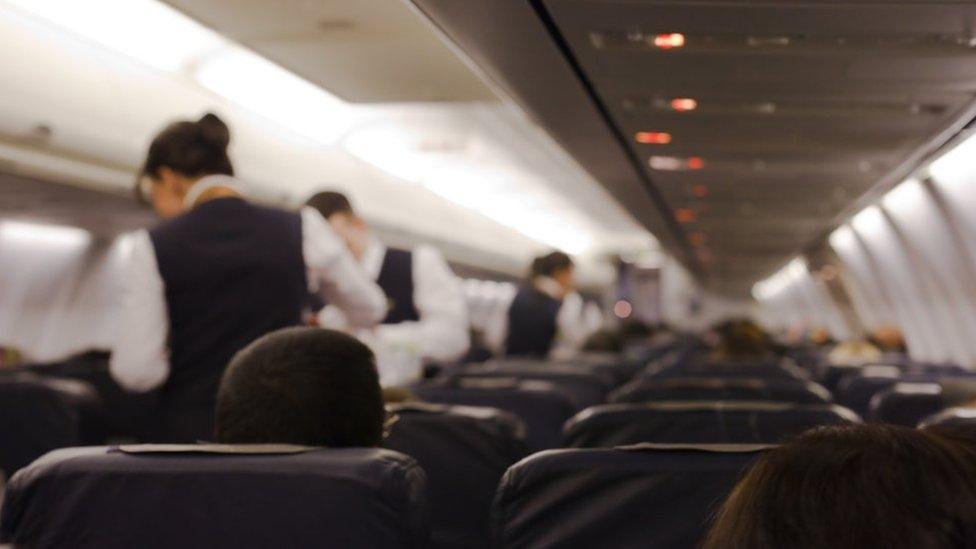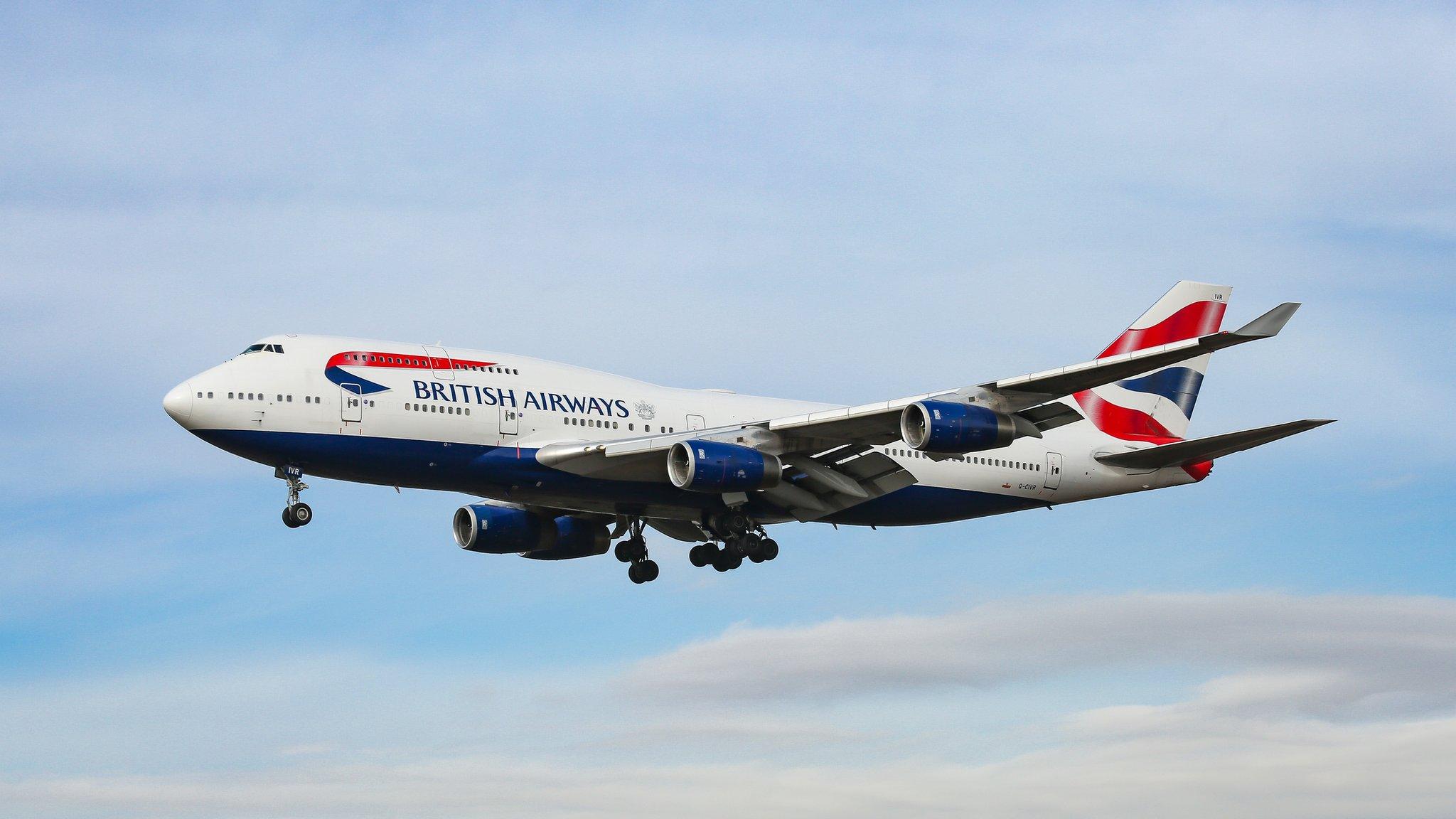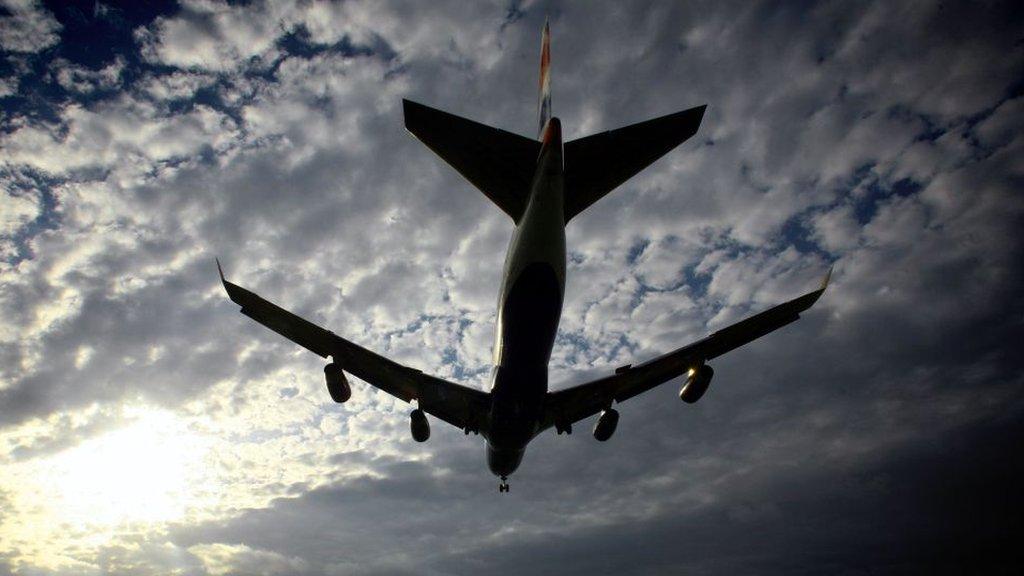Coronavirus: BA reaches deal to suspend thousands of workers
- Published

British Airways has reached a deal to temporarily suspend more than 30,000 of its cabin crew and ground staff.
The airline, which has grounded most of its fleet due to the coronavirus, has been locked in talks with unions for more than a week.
But on Thursday, BA boss Alex Cruz told staff that a large majority of employees would be suspended for the next two months.
He said the government's job retention scheme would fund 80% of their wages.
Explaining the decision, Mr Cruz said: "We need to act now to protect jobs and ensure that BA comes out the other side of this crisis in the best possible shape."
The decision will affect all staff at Gatwick and London City Airport after the airline suspended its operations at both locations until the crisis is over.
"The number of colleagues who will be furloughed reflects the significant drop in flying," Mr Cruz said.
Under the jobs retention scheme, the government funds 80% of someone's salary capped at a maximum of £2,500 a month. But union Unite said there would be no cap on earnings under its agreement with BA.
The union also said no BA staff would be made redundant during the coronavirus crisis.
"Given the incredibly difficult circumstances that the entire aviation sector is facing this is as good a deal as possible for our members," the union's national officer for aviation, Oliver Richardson, said in a statement.


No one who works at British Airways will be surprised at today's announcement. When the planes are sitting on the ground - and nearly all of BA's fleet is doing just that, dispersed to regional airports around the country - there is no need for the army of workers who fly the aircraft, maintain them, load and unload the bags, and serve the passengers.
Staff typically make up about 40% of an airline's costs, and BA should be able to reclaim 80% of wages from the government employment support scheme set up to help companies affected by the virus.
BA has not, so far, asked the government for any other specific financial assistance. Nor has EasyJet, where senior sources say the general assistance programmes - wage assistance and loan guarantees - should be sufficient.
Virgin Atlantic, however, continues to press, and has written to MPs pointing out that it provides the only British-flagged competition to British Airways on many key routes from Heathrow.
So far the Chancellor, Rishi Sunak, has taken a hard line, saying airlines should exhaust all financial revenues before turning to the taxpayer. If Virgin does make a formal application for more aid, it will have to be able to show it has met the chancellor's test.

BA had already reached a separate deal with its 4,000 pilots who will take a 50% pay cut over two months.
John Strickland, independent aviation analyst, said "tough negotiations" between BA and the Unite union meant it had taken a while to reach an agreement.
"The pilots' deal for half pay was concluded rather earlier - I guess there was a recognition as to just how serious that issue was," he said.
BA's parent company, International Airlines Group (IAG), is in a better financial position than some of its competitors. The group has made healthy profits in recent years.
But the airline's expected decision to suspend such a large number of workers gives a sense of how hard UK aviation has been hit by travel restrictions designed to stem the spread of the pandemic.

A SIMPLE GUIDE: How do I protect myself?
AVOIDING CONTACT: The rules on self-isolation and exercise
LOOK-UP TOOL: Check cases in your area
MAPS AND CHARTS: Visual guide to the outbreak
VIDEO: The 20-second hand wash

With future bookings cancelled for the foreseeable future, airlines have been haemorrhaging cash.
Over the next three months, the International Air Transport Association expects airlines to rack up losses of almost $40bn (£32.3bn). It said carriers were burning through their cash reserves fast, mainly because of the multi-billion-pound cost of refunding tickets for cancelled flights.
Many staff at Virgin Atlantic have had their jobs suspended for two months and crews at Easyjet are out of work for three months.
This week, British Airways has run government repatriation flights to get hundreds of British nationals home from Peru, after the country went into lockdown.
It is one of several UK-based airlines that has agreed to run further repatriation flights in the coming weeks as hundreds of thousands of people are still stuck in other parts of the world.
- Published13 March 2020

- Published30 March 2020
